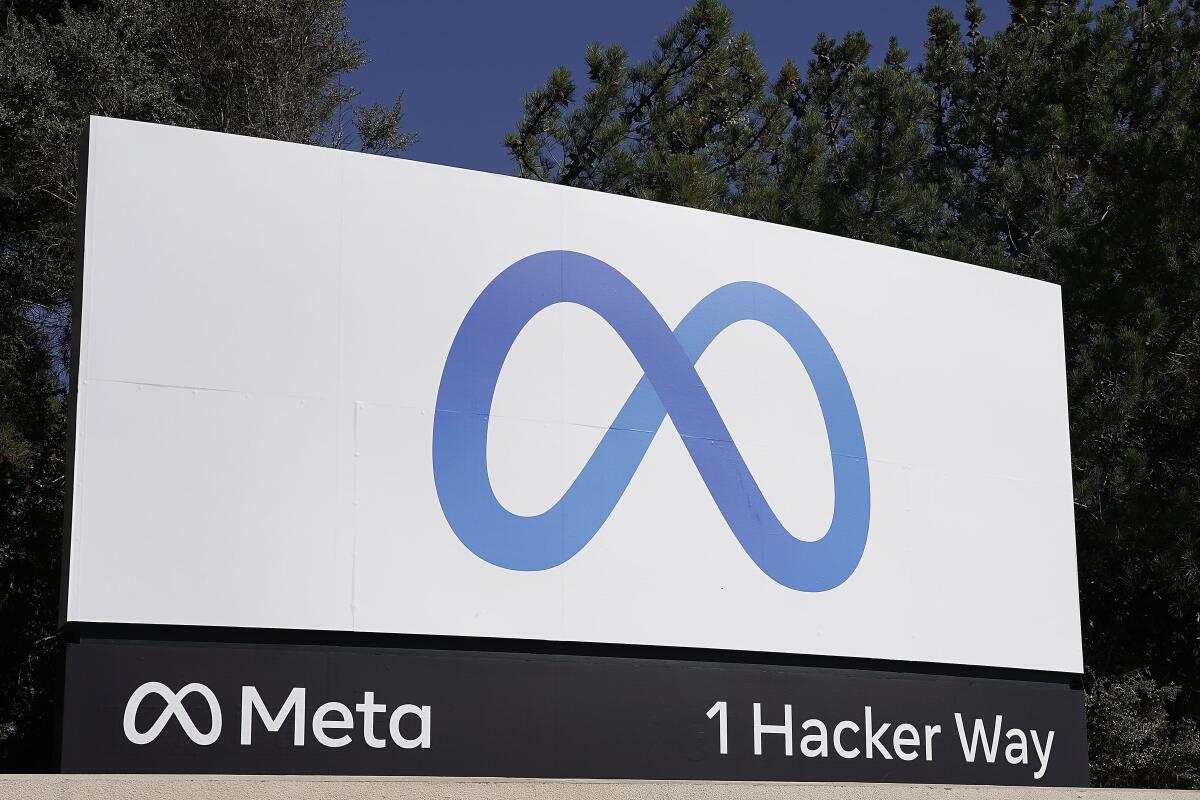Zuckerberg personally nixed ban on harmful plastic surgery filters, lawsuit claims

- Share via
Mark Zuckerberg vetoed a proposal at Meta Platforms to ban filters that simulate the effects of plastic surgery, despite concerns that the technology could harm girls’ mental health, according to a lawsuit by more than 30 U.S. states.
The allegations about the filters, the number of users under age 13 and whether the company misrepresented the safety of its Facebook and Instagram platforms were detailed in a largely unredacted copy of the suit distributed Monday by California Atty. Gen. Rob Bonta. The filters issue provides additional context for the alleged misconduct at the heart of the complaint, Bonta said.
The suit, initially filed in federal court in Oakland last month, added to growing scrutiny of social media giants over how they serve their youngest users. Meta has said it’s committed to keeping teens safe online and has introduced more than 30 tools to support youths and their families.
“Meta knows that what it is doing is bad for kids — period,” Bonta said in a statement. “Thanks to our unredacted federal complaint, it is now there in black and white, and it is damning.”
The company said in a statement that “while filters exist across every major social platform and smartphone camera, Meta bans those that directly promote cosmetic surgery, changes in skin color or extreme weight loss.”
“We want teens to have safe, age-appropriate experiences online,” the Menlo Park, Calif., company said. “We’ve spent a decade working on these issues and hiring people who have dedicated their careers to keeping young people safe and supported online.”
According to the lawsuit, in 2020, Zuckerberg, the company’s chief executive, was given internal memos on filters that detailed Meta’s consultation with independent experts “about the impact of these effects on body dysmorphia and eating disorders,” especially for teenage girls.
“The document reminded Meta’s senior leaders that academic researchers had demonstrated that ‘Facebook and Instagram use is associated with body image issues and anxiety among users and particularly among women and teenage girls,”’ according to the lawsuit, which cited the document.
But in early April, Zuckerberg canceled a meeting to discuss the issue and then vetoed the proposal to ban camera filters that simulated plastic surgery, according to the unredacted complaint. “Zuckerberg dismissed concerns about the filters (from the public, from experts, and from his own employees) as ‘paternalistic,”’ according to the lawsuit.
The unredacted version of the suit includes claims that Meta “coveted and pursued” young users on its social media platforms and failed to pursue strategies that might limit use by children under 13 because of concerns that it might harm business.
The company allegedly doesn’t take action on accounts of possibly underage users unless it can verify they actually belong to people under 13. The states say that Meta has a “backlog of 2-2.5 million under 13 accounts awaiting action — and permits the collection of data from those accounts until Meta can evaluate the reported account.”
The company said that because verifying age is a “complex industry challenge,” it is supporting a federal legislative proposal to requires app store to get parents’ approval whenever their teens under 16 download apps.
The complaint says company documents show Meta set goals for the amount of time users spend on the platform — despite public statements to the contrary — and Zuckerberg prioritized that metric over reducing the number of notifications delivered to users.
The states also allege that the company said publicly that its platform was safe, when internal data showed that users experienced disproportionate harm online.
“Meta represented to the public that its Social Media Platforms were far safer for young users than they actually were,” lawyers for the states wrote.
State and federal judges in California overseeing more than 700 personal injury claims have allowed families to move forward with negligence allegations against Meta, Google, TikTok and Snap. The companies also face more than 400 suits by school districts alleging they have created a public nuisance.






